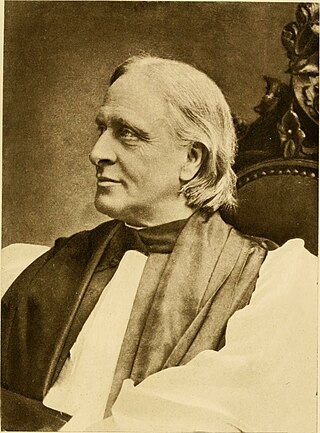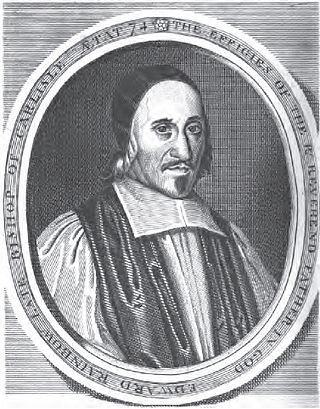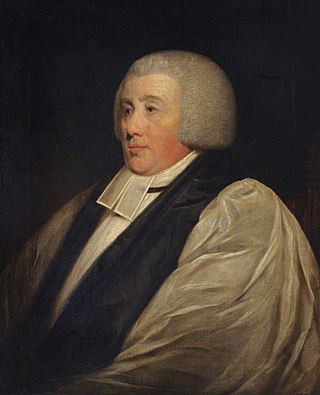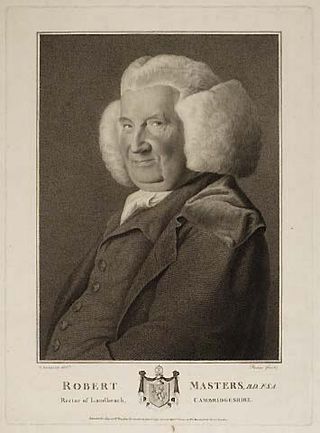Related Research Articles

Edward White Benson was archbishop of Canterbury from 1883 until his death. Before this, he was the first Bishop of Truro, serving from 1877 to 1883, and began construction of Truro Cathedral.

Magdalene College is a constituent college of the University of Cambridge. The college was founded in 1428 as a Benedictine hostel, in time coming to be known as Buckingham College, before being refounded in 1542 as the College of St Mary Magdalene.

Edward Rainbowe or Rainbow (1608–1684) was an English academic, Church of England clergyman and a noted preacher. He was Master of Magdalene College, Cambridge, Vice-Chancellor of the University of Cambridge and Bishop of Carlisle.

Edmund Law was a churchman in the Church of England. He served as Master of Peterhouse, Cambridge, as Knightbridge Professor of Philosophy in the University of Cambridge from 1764 to 1769, and as bishop of Carlisle from 1768 to 1787.

Queen Elizabeth Grammar School (QEGS) is a public school for boys in Wakefield, West Yorkshire, England. The school was founded by Royal Charter of Queen Elizabeth I in 1591 at the request of leading citizens in Wakefield 75 in total and some of whom formed the first governing body.

William Lort Mansel was an English churchman and Cambridge fellow. He was Master of Trinity College, Cambridge from 1798 to his death in 1820, and also Bishop of Bristol from 1808 to 1820.
Richard Howland (1540–1600) was an English churchman and academic, Master of Magdalene College, Cambridge, and of St John's College, Cambridge, and bishop of Peterborough.

Edmund Keene was an English churchman and academic, who was Master of Peterhouse, Cambridge and later served first as Bishop of Chester, then Bishop of Ely.
Peter Peckard was an English Whig, Vice-Chancellor of Cambridge University, Church of England minister and abolitionist. From 1781 he was Master of Magdalene College, Cambridge. He was incorporated at Cambridge in 1782, appointed vice-chancellor in 1784, and created Doctor of Divinity (DD) per literas regias in 1785. In April 1792 he became Dean of Peterborough.
William Gretton (1736–1813), was the master of Magdalene College, Cambridge.

Robert Masters (1713–1798) was an English clergyman and academic, known as the historian of Corpus Christi College, Cambridge.
Thomas Chapman (1717–1760) was an English churchman and academic, Master of Magdalene College, Cambridge from 1746.
Philip Twysden (1713–1752), was an Anglican clergyman who served in the Church of Ireland as Lord Bishop of Raphoe from 1747 to 1752. The circumstances of his death later became the subject of scandalous rumour.
William Samuel Powell, D.D. (1717–1775) was an eighteenth century academic and priest, most notably Vice Chancellor of the University of Cambridge from 1765 until 1766; and Archdeacon of Colchester from 1766 until his death. He was elected as a Fellow of the Royal Society in 1764.
Henry Smyth, D.D. was a 17th-century priest and academic.
George Sandby, D.D. was an 18th-century English priest and academic.
John Howorth, D.D. was a 17th-century priest and academic.
Gabriel Quadring, D.D. (1640-1713) was a priest and academic.
Sir Edward Simpson, of Acton, Middlesex was an English politician, lawyer and academic.
References
- ↑ "The History of the University of Cambridge, from Its Original, to the Year 1753;: In which a Particular Account is Given of Each College and Hall, Their Respective Foundations, Founders, Benefactors, Bishops, Learned Writers, Masters, Livings, Curiosities, &c. Together with Accurate Lists of All the Chancellors, Vice-Chancellors, Proctors, Taxers, Professors, Orators, and Members of Parliament" Carter, E. p296: London, Davis & Woodyer, 1753
- ↑ Cunich, Hoyle, Duffy and Hyam (1994). A History of Magdalene College, Cambridge. Magdalene College Publications ISBN 0952307308
- ↑ "Abbott, Edward (ABT718E)". A Cambridge Alumni Database. University of Cambridge.
